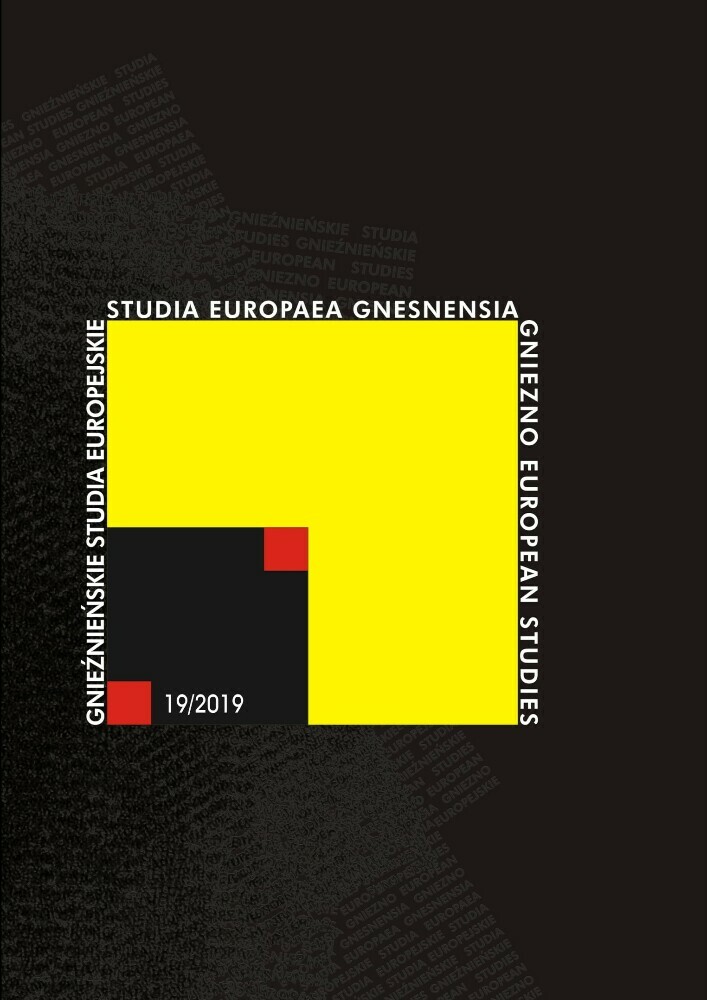Abstrakt
The article delves into the principles of the right to resistance in radical Presbyterian thought. As an example, the author discusses Samuel Rutherford’s political theology, which represents a consummation of the earlier concepts of tyranny and right to disobey that had been formulated largely within the Calvinistic camp. The theology in question became one of the chief arguments in support of the Puritan Revolution in England.
Bibliografia
Buchanan G. 1689, De jure regni apud Scotos, or, A dialogue, concerning the due priviledge of government in the kingdom of Scotland, Richard Baldwin, London.
Calvin J. 1849, Commentaries on the Epistles of Paul to the Romans, trans. John Owen, Edinburgh.
Calvin J. 1992, Sermon on Samuel 8: 11-22, trans. D. Kelly, The Counsel of Chalcedon, September, 8, s. 4-11.
Campbell W.M. 1941, Lex, Rex and its Author, Scottish Church History Society, s. 204-228.
Coffey J. 1997, Politics, religion and the British revolutions, Cambridge.
Coffey J. 2006, The Impact of Apocalypticism during the Puritan Revolutions, Perichoresis 4/2, s. 117-147.
Coffey J. 2012, George Buchanan and the Scottish Covenanters, [w:] Erskine Caroline, Mason Roger A. (eds.), George Buchanan. Political Thought in Early Modern Britain and Europe, Farnham.
Edgar W. 1989, The National Confessional Position, [w:] Scott Smith G. (ed.), God and Politics. Four Views on the Reformation of Civil Government, Phillipsburg.
Elazar Daniel J. 1996, Covenant and Commonwealth. From Christian Separation through the Protestant Reformation. The Covenant Tradition in Politics II, New Brunswick.
Ford J.D. 1994, Lex, rex iusto posita: Samuel Rutherford on the origins of government, [w:] Mason R.A. (ed.), Scots and Britons Scottish political thought and the union of 1603, Cambridge-New York-Melbourne-Madrid-Cape Town-Singapore-Sao Paulo.
Freitas Shaun de, Raath Andries, 2016, Samuel Rutherford and the protection of religious freedom in early seventeenth-century Scotland, Historical and Theological Studies 78, s. 231-248.
Gooch G.P. 1914-15, Political Thought in England. From Bacon to Halifax, London.
Gooch G.P. 1959, English Democratic Ideas in the Seventeenth Century, New York-Evanston-London.
Guthie H. 1702, Memoirs of Henry Guthrie, Late Bishop of Dunkel in Scotland, London,
Johnston W. 2011, Revelation Restored. The Apocalypse in Later Seventeenth-century England, Woodbridge-Rochester.
Laski H. 1924, Introduction, [w:] Junius Brutus, A Defence of Liberty Against Tyrants. A Translation of the Vindiciae Contra Tyrannos, London.
Maclear J.F. 1965, Samuel Rutherford: The Law and the King, [w:] Hunt G.L. (ed.), Calvinism and the Political Order, The Westminster Press, Philadelphia.
Makey W. 1979, The Church of the Covenant, 1637-1651, Edinburgh 1979.
Moots Glenn A. 2010, Politics Reformed. The Anglo-American Legacy of Covenant Theology, London.
Nijienhuis W. 2004, The Limits of Civil Disobedience in Calvin’s Latest Known Sermons, [w:] Pettegree A. (ed.), The Reformation: Critical Concepts in Historical Studies, London.
Ramsey P.D. 2012, Samuel Rutherford’s Contribution to Covenant Theology in Scotland, [w:] V. Matthew (ed.), Samuel Rutherford. An Introduction to His Theology, Edinburgh.
Reid W. Stanford 1988, John Knox’s Theology of Political Government, Sixteenth Century Journal, XIX, 4, s. 529-540.
Rutherford S. 1549, A free disputation against pretended liberty of conscience tending to resolve doubts moved by Mr. John Goodwin, John Baptist, Dr. Jer. Taylor, the Belgick
Arminians, Socinians, and other authors contending for lawlesse liberty, or licentious toleration of sects and heresies, London.
Rutherford S. 1646, The divine right of church-government and excommunication: or a peacable dispute for the perfection of the holy scripture in point of ceremonies and church government, London.
Rutherford S. 1655, The covenant of life opened, or, A treatise of the covenant of grace, Edinburgh.
Rutherford S. 1843, Lex, Rex, or The Law and the Prince; A dispute for The Just Prerogative of King and People: containing The reasons and causes of the most necessary defensive wars of the Kingdom of Scotland, and of their Expedition for the aid and help of their dear brethren of England; in which their innocency is asserted, and a full answer is given to a seditious pamphlet, entitled, Sacro-Sancta Regnum Majestatis, Edinburgh.
Sanderson J. 1989, ‘But the People’s Creatures’. The philosophical basis of the English Civil War, Manchester, New York.
Skinner Q. 1978, The Foundations of Modern Political Thought, 2: The Age of Reformation, New York.
Szlachta B. 2005, Konstytucjonalizm czy absolutyzm? Szkice z francuskiej myśli politycznej XVI wieku, Kraków.
Szlachta B. 2008, Monarchia prawa? Angielska myśl polityczna doby Tudorów, Kraków.
Witte Jr J. 2007, The Reformation of Rights. Law, Religion, and Human Rights in Early Modern Calvinism, Cambridge.

